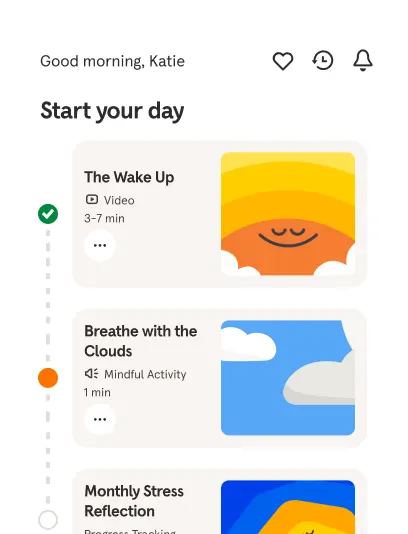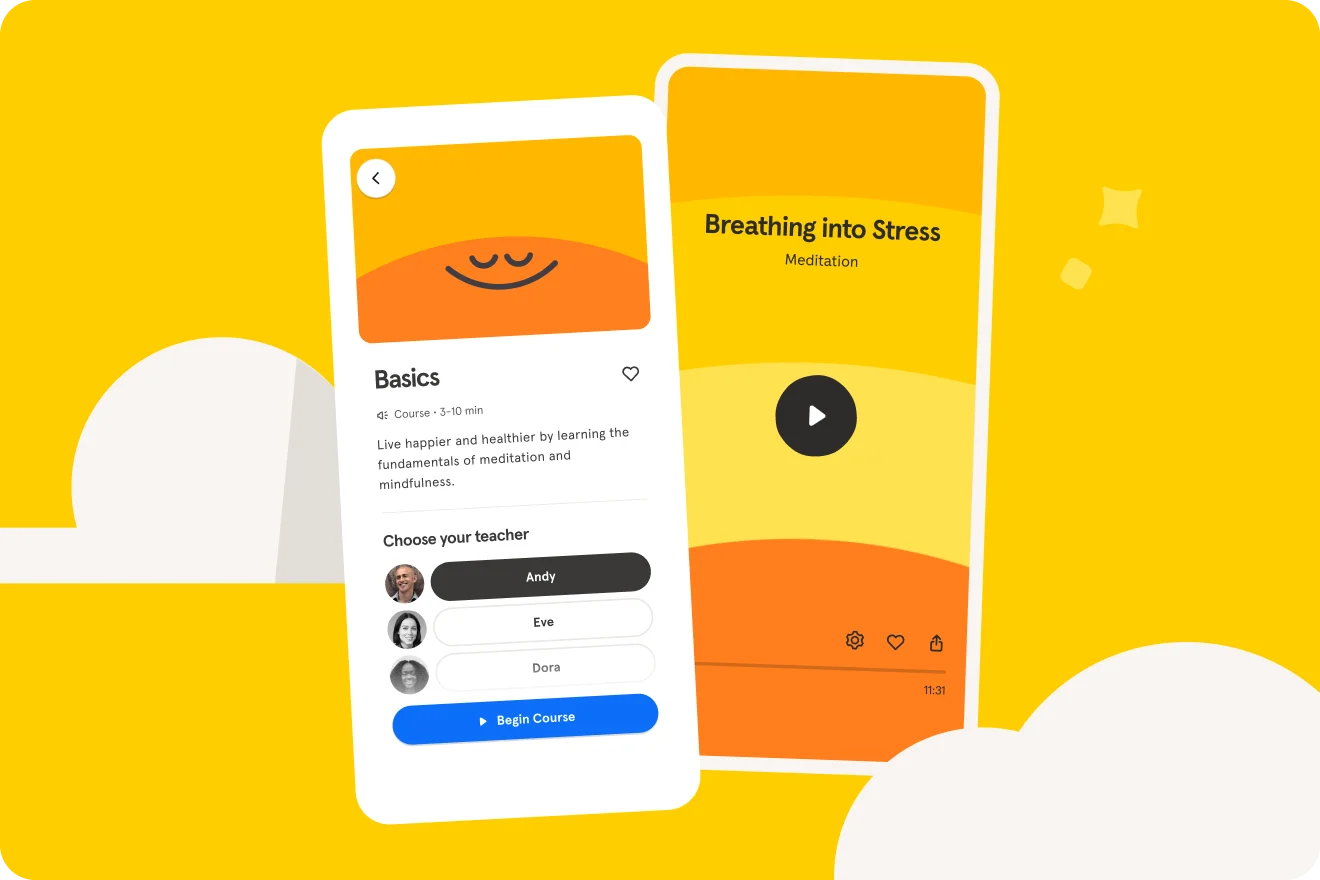The Science of Sleep
From The Wake Up: Learn about circadian rhythm, the internal process that wakes us up and lets us rest.
Try 14 days freeBetter mental health starts with Headspace. Unrivaled expertise to make life feel a little easier, using guided meditations, mindfulness tips, focus tools, sleep support, and dedicated programs.
Try 14 days free
(gentle music) Today we're going to explore circadian rhythms, the natural process our brains use to regulate our sleep-wake cycle throughout the day. This biological process is constantly moving to and fro. It's a great reminder of an idea so important to mindfulness: impermanence. That is, that everything is changing in our minds, our bodies, and the world around us. The word circadian comes from two Latin words. Circa, which means about and diem, which means day. Animals and plants have naturally occurring rhythms that recur every 24 hours, some of which are influenced by light and dark, but let's focus on us humans. Our eyes have adapted to using light. Bight light and dim light, multicolored light and monochromatic light. Our eyes are connected via the optic nerve to the back of the brain. Here, a tiny region is responsible for controlling the circadian rhythms. It's essentially a master clock, which, based on the light signals it receives, regulates the production of a variety of hormones, affecting sleep, body temperature, and other key bodily functions. Say what going out camping, a weekend journey with just natural light, for our brain to experience. During the day, the sun's light is taken in through the retina and a signal tells our brains, specifically the pineal gland, not to produce melatonin, the hormone that makes us sleepy. But when the sun sets, there's nothing at the distant twinkling star light to hit our eyes. Now the opposite signal is sent. Begin the melatonin production. And as a result, we start to get drowsy. In the darkness, we soon fall asleep. When the sun starts to rise bright and early, a light hitting the eyelids illuminates the back of the eye, which sends a message to the brain's clock, saying we need a halt in the melatonin production and the pineal gland makes no more. As the effect of melatonin starts to wane, we wake up ready to start our day. With light pouring into our eyeballs, we stay wide awake, ready to enjoy another great day of activity. As you go about your day, take comfort in the biological cycles in continuous motion, which, just like life, are changing from one moment to the next....
Details
About your teachers
- More about Andy
A former Buddhist monk, Andy has guided people in meditation and mindfulness for 20 years. In his mission to make these practices accessible to all, he co-created the Headspace app in 2010.
- More about Eve
Eve is a mindfulness teacher, overseeing Headspace’s meditation curriculum. She is passionate about sharing meditation to help others feel less stressed and experience more compassion in their lives.
- More about Dora
As a meditation teacher, Dora encourages others to live, breathe, and be with the fullness of their experiences. She loves meditation’s power to create community and bring clarity to people’s minds.
- More about Kessonga
Kessonga has been an acupuncturists, therapist, and meditation teacher, working to bring mindfulness to the diverse populations of the world.
- More about Rosie
Rosie Acosta has studied yoga and mindfulness for more than 20 years and taught for over a decade. Rosie’s mission is to help others overcome adversity and experience radical love.

Your lifelong guide to better mental health
Stress, sleep, and all the challenging emotions — care for your mind with the everyday mental health app that's shown to make a difference.
Try 14 days free
Look after your mind
Proven guided meditations and programs to help you stress less, sleep more soundly, and better navigate life’s challenges

Science-backed
Studies show that using Headspace for 30 days can reduce stress, increase resilience, and improve overall well-being

Explore 1000+ expert-led exercises
Access our library of meditations, breathing exercises, and guidance videos for stress, sleep, focus, everyday anxiety , parenting, and more.
Member reviews
Hear from some of our members
Your app brings so much peace and tolerance to our home.
Rachel
UK
Changing my thoughts has allowed me to change my life.
Davide
London
The stress and loneliness courses … taught me how to comfort myself.
Alicia
Canada
Headspace provides me with … a connection to myself, and a disconnection from negative thoughts, feelings, and sensations.
Keri
UK
- © 2024 Headspace Inc.
- Terms & conditions
- Privacy policy
- Consumer Health Data
- Your privacy choices
- CA Privacy Notice

